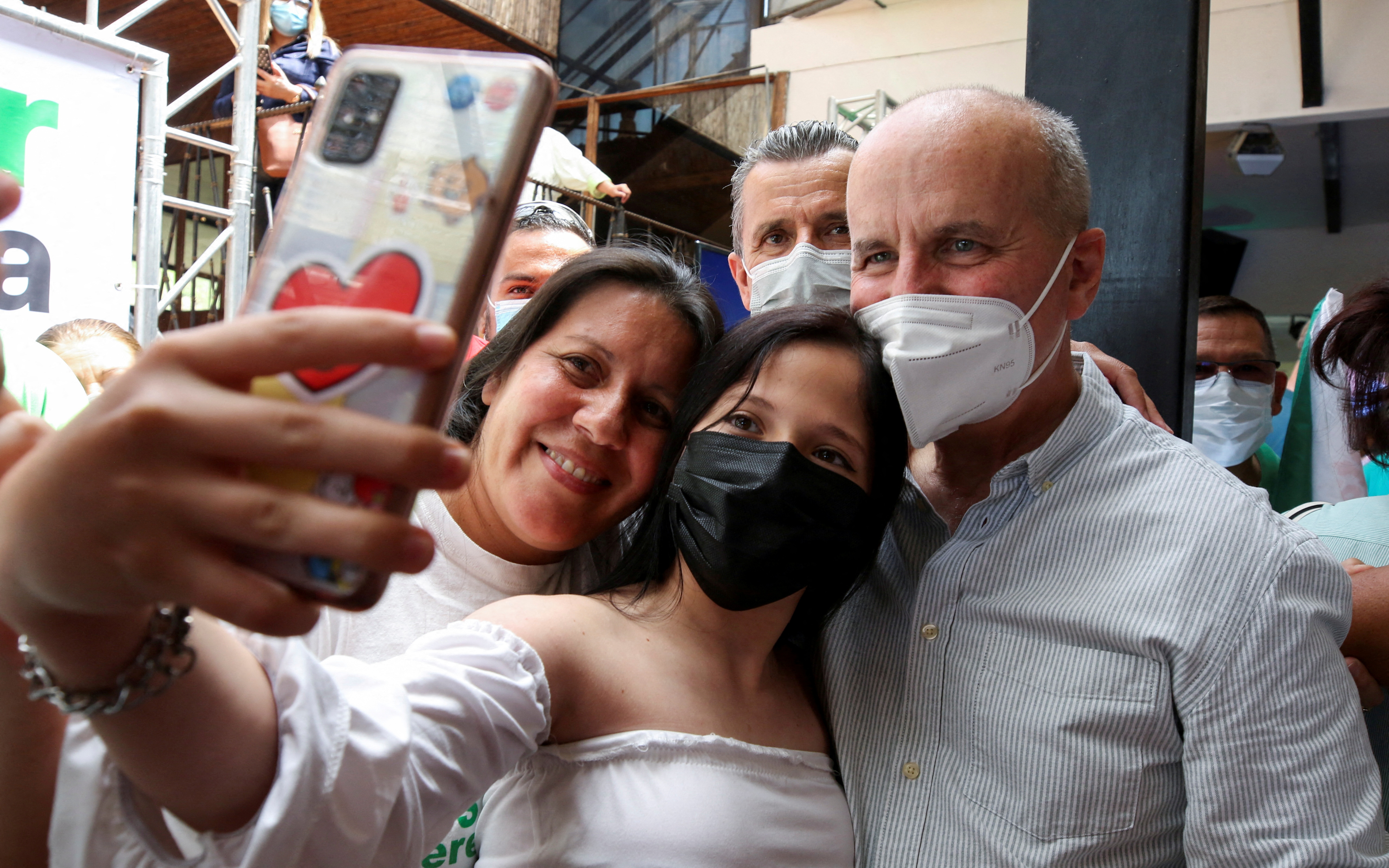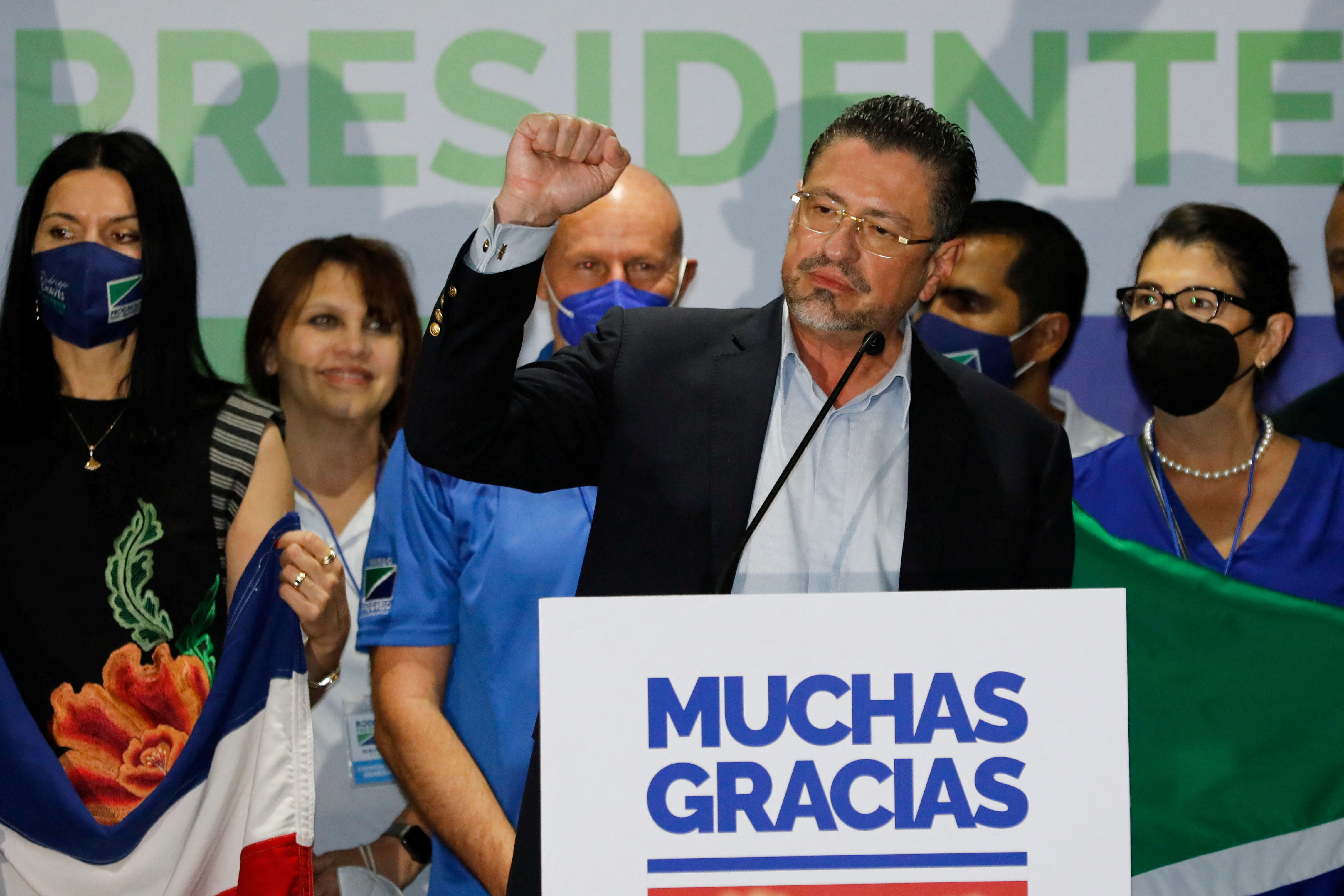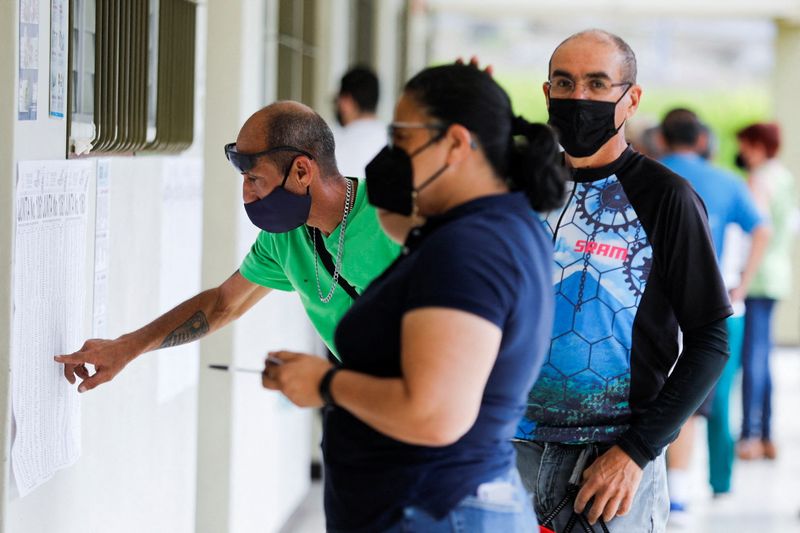
They closed polling stations in Costa Rica and the counting began to determine who will preside over the country for the next four years. The dispute is between José María Figueres, from the National Liberation Party (PLN) and Rodrigo Chaves, from the Social Democratic Progress Party (PPSD).
The polling stations opened at 06:00 local time (12:00 GMT) and closed at 18:00 (00.00 GMT on Monday). Two hours later, the Supreme Electoral Court (TSE) is expected to deliver the first results.
Figueres and Chaves reached this second round technically tied according to the latest polls. “There are no significant differences between the candidates, either of them could be leading right now, we don't know how much, but the forces are very even at the moment,” said Ronald Alfaro University Weekly, coordinator of the CIEP survey.
The Electoral Observation Mission of the Organization of American States highlighted the order and organization with which the day was spent. “We have seen everything go in an organized way, we have no reports of any anomalies,” said the head of the OAS electoral mission, former vice president and former chancellor of Panama Isabel de Saint Malo, during a visit to a polling station in San José.

Jose Maria Figueres Olsen
Figueres Olsen, 67, a candidate for the traditional National Liberation Party (PLN), comes from a family of politicians, and was president of Costa Rica between 1994 and 1998.
He is the son of José María Figueres Ferrer, “Don Pepe”, who was president of the country for three terms and went down in history as the president who abolished the army in Costa Rica in December 1948. “Don Pepe” came to power after taking up arms in what was called “The Revolution of 48″.
Figueres Olsen graduated in industrial engineering from the West Point military academy in the United States, was Minister of Foreign Trade and then Agriculture and Livestock during the first administration (1986-1990) of Nobel Peace Prize winner Oscar Arias. In 1994 he became President.
José María Figueres has been told to participate in a corruption scandal known as the ICE-Alcatel case between 2000 and 2003, in which the French company Alcatel had bribed Costa Rican politicians and officials from various governments. Figueres would have received $900,000 from that French company. He has denied that it was bribery and alleges that with the company he developed “consultancy work”.
Although he was never charged with a crime, coinciding with the scandal, Figueres moved to live in Switzerland and returned to Costa Rica eight years later, after the prosecution filed the file.

Rodrigo Alberto de Jesus Chaves Robles
Chaves Robles, 60, a candidate of the emerging Social Democratic Progress Party (PPSD), holds a PhD in Economics from Ohio University in the United States and received a scholarship from Harvard University to study poverty issues in Asia. He was Costa Rica's finance minister during the current government of Carlos Alvarado for a period of six months after which Alvarado asked him to resign in May 2020 due to “irreconcilable differences.”
He worked for the World Bank for nearly 30 years, and became director of the World Bank office in Indonesia.
Two World Bank workers denounced Chaves for “sexual innuendo” and a “pattern of unwanted inappropriate behavior” that the candidate has claimed are “gossip and lies.” He also denied that this was the reason for his resignation from the world body.
As published by The Wall Street Journal in October 2021, an investigation by a World Bank administrative court records testimonies describing Chaves as a “known stalker” and that there is “a documented pattern of harassment that lasted at least four years and involved six women.”
Although this issue became the main attacking flank of rivals and civil organizations, it does not seem to have made a dent in most Costa Ricans who took it from fifth to second place in the first round of elections, and kept it at the top of the sympathies in the last polls.
Chavez's campaign slogan is #MeComoLaBronca, a phrase that Costa Ricans use as “I face problems.”
Both candidates have focused their work proposals on the economy, state management and the environment, and the debate has focused on the issues of corruption, management of electoral funding and complaints of sexual harassment.
“It all starts with accelerating our economy to generate jobs, attract investment, consolidate new businesses and strengthen our exports. You have our promise: we will end, once and for all, the paperwork, the excessive obstacles and interventions of the State and the abusive costs. We will let them work, without getting in the way!” , promises Chaves in his government plan.
The Figueres programme, for its part, proposes among its main goals for 2030 “to reduce carbon emissions by half, to eliminate extreme poverty, to reduce unemployment to less than 7%, to be a bilingual country, to recover fiscal health (deficit less than 3% and debt less than 50% of GDP), to grow at a rate greater than 5% sustained, and to be the number one in competitiveness in Latin America”.

KEEP READING:
Últimas Noticias
Debanhi Escobar: they secured the motel where she was found lifeless in a cistern

The oldest person in the world died at the age of 119

Macabre find in CDMX: they left a body bagged and tied in a taxi
The eagles of America will face Manchester City in a duel of legends. Here are the details

Why is it good to bring dogs out to know the world when they are puppies



